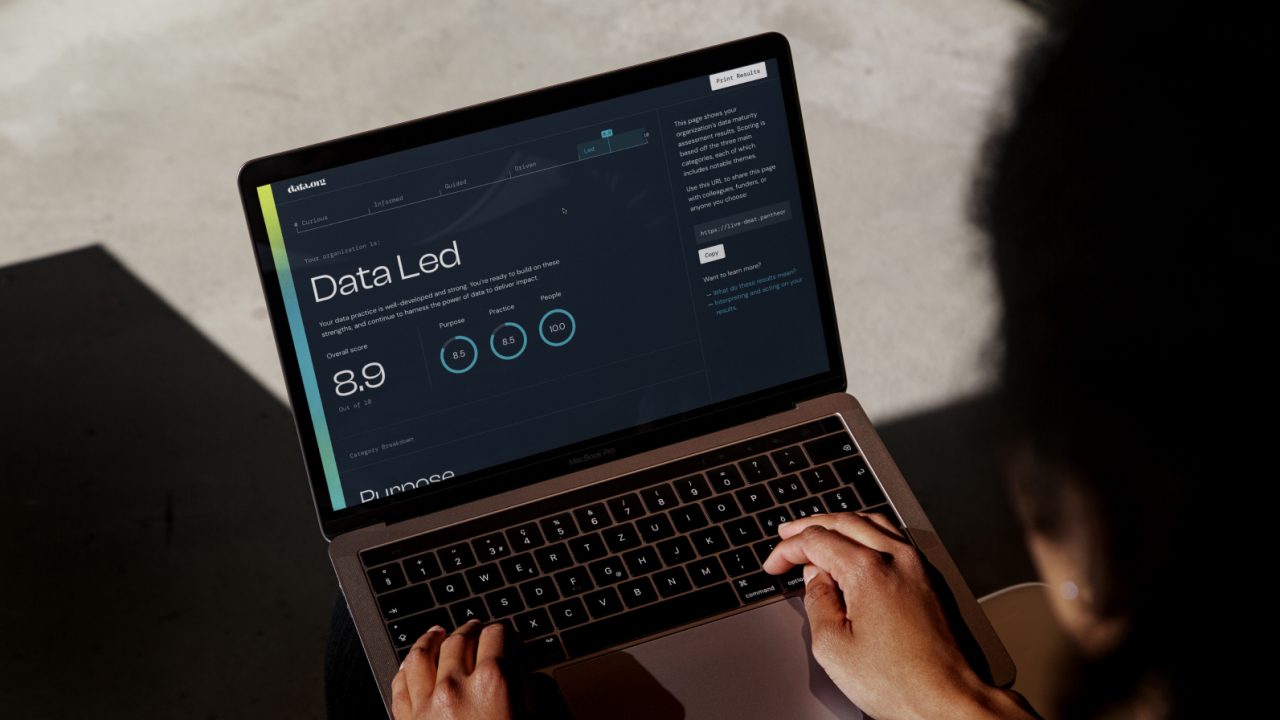Data drives impact. The power of data to accelerate progress is increasingly understood and appreciated, yet social impact organizations (SIOs) continue to lag behind their private sector peers in the use of data to increase efficacy, efficiency, and growth.
In a data maturity survey of 2,000 of these organizations around the world, a picture of limited capacity emerges.
Only 27 percent of SIOs report using data internally to ask difficult questions and challenge practices. Only 33 percent describe their data security policies and practices as robust. And nearly half of all SIOs have no trusted data expert on their senior leadership team.
As AI adoption surges, getting the approach to data right is critical, but today, too few organizations have the people or systems in place to do so. Positioned on the frontline of essential service delivery and interventions across health care, skilling, the climate crisis, and beyond, SIOs have a lot of catching up to do when it comes to data for social impact.
Our team at data.org understood that dynamic when we launched the Data Maturity Assessment (DMA), an online evaluation that provides a snapshot of an organization’s data maturity and points organizational leaders in the direction of tools and resources that will strengthen their practice and help them advance on their data journey.
As we mark our two year anniversary from the DMA launch, we’re encouraged by how many organizations have found the tool useful. The assessment has been used more than 2,000 times by a diverse set of organizations around the world. We have seen multiple people or even entire organizations take the assessment in order to pinpoint areas for improvement and signal to staff and leadership that data is part of their DNA. And now, with our expanded capabilities on our website, organizations can save their results, and assess their progress over time with access to curated resources, from our expert Q&A to playbooks that provide a roadmap for leveraging data more effectively.
The DMA is a free and easy-to-use tool for the social impact sector, but it’s also a source of important insights for data.org and the broader DSI community.
- Not surprisingly, larger organizations report higher levels of data maturity than those with 10 or fewer people.
- Yet there are other insights that may surprise people. Humanitarian relief and gender equity are the sectors with the highest levels of data maturity.
- Despite resource constraints, Africa is the region with the highest data maturity.
- And across sectors, the lowest-scoring DMA category is people, underscoring the need for a deeper bench of talent, more education and training, and an ecosystem that makes it easier to build organizational capacity, as highlighted by Workforce Wanted: Data Talent for Social Impact, our report on global data talent in the social sector.
This glimpse into the field and how it is developing continues to inform our work at data.org, ensuring that we are convening the right players, supporting the right solutions, and increasing access to the right resources. In many ways, it helps us assess our own maturity as an organization serving the social impact sector, and strengthens our work with partners.
data.org’s Data Maturity Assessment is a starting line. It’s the place for social impact organizations of all sizes and sectors to begin their journey, armed with a deeper understanding of what it means to be a data-informed organization.
Because to know where you’re headed, you need to understand exactly where you started.
About the Author
As Vice President of Strategy and Partnerships, Lindsey Gottschalk works at the intersection of strategy and operations to strengthen the collaboration among partners and scope and implement new initiatives.
Read more